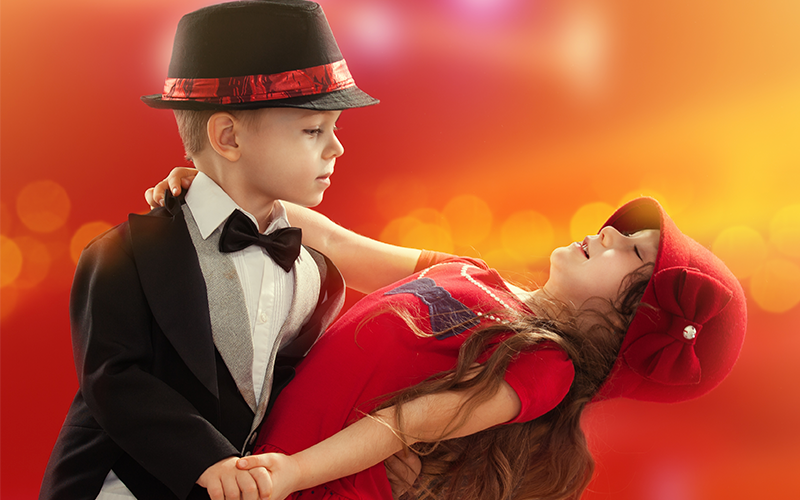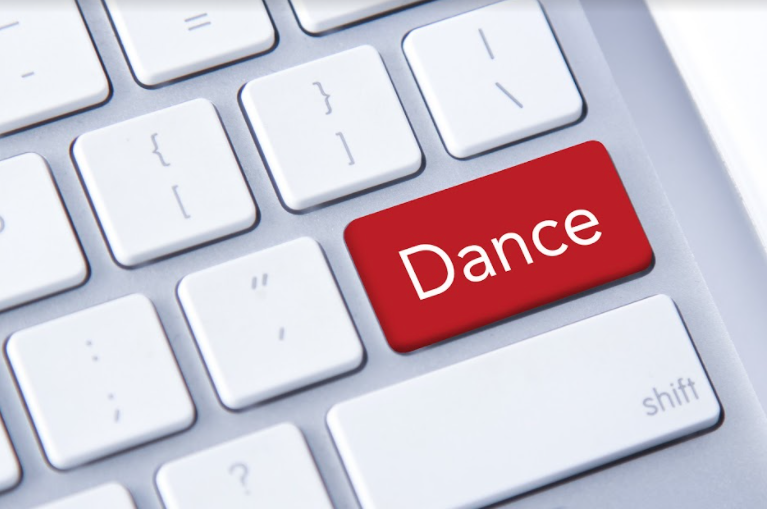The importance of learning
to dance from childhood.

The importance of learning to dance from childhood.
At what point in life do we care about learning to dance? The most common answer is ‘when it becomes urgent,’ when we meet someone special who likes to go dancing, or when we have an event where we’re forced to dance. We often don’t give this beneficial activity the importance it truly deserves, even though through it, we learn many things that we’ll discuss later.
As parents, we often assume that this skill will develop on its own or that one is either born with it or without it. ‘Nobody in the family dances…’ ‘They take after their father/mother who can’t even move their eyes.’ With these thoughts, we justify not making the slightest effort for our children to learn to dance, condemning them to a life of discomfort and even frustration when they attend gatherings where there’s usually dance music. We tend to focus more on teaching them other things that seemingly contribute to their development, perhaps overlooking how dancing could impact their self-confidence positively.
Nowadays, learning to dance means much more than just moving gracefully on your own or with someone without any communication, where everyone moves as they can, holding hands or hugging poorly. Dancing well involves the internal enjoyment that comes from moving to the rhythm of the music and the aesthetic of executing it, whether alone or in perfect coordination with a partner. It’s about losing track of time and becoming one with the musical notes, blending form and substance.
Speaking about children, the ‘useful average age’ that I personally consider appropriate for learning to dance is around 9 years old (which can be considered late). This is when children start showing more structured thinking, understanding more complex processes, and their myelination process is at its peak, shaping and structuring all their neural networks and connections. A suggestion is for children to learn to dance first with their parents (when they still listen), meaning the son with his mom or the daughter with her dad. Even if parents don’t know how to dance, it’s important for children to see that learning is a necessity; so much so that parents actively participate in this activity.
There are extraordinary cases in which children as young as 4 or 5 years old can indeed start dancing and receive the corresponding training. It is recommended that they have a dance partner of the same age (which could initially be their own parents) so that both can immerse themselves in the training and discipline involved in the beautiful art of learning partner dancing.
Certainly, a child who knows how to dance and has been under this discipline has a significant advantage over their peers of the same age, and this will be reflected in their future as individuals, having very strong foundations in self-control, discipline, social skills, and self-confidence.
Here are some of the advantages of learning to dance from a young age:
- They have the support of their parents to take the course.
- They learn to have confidence and to interact with people of the opposite sex.
- They learn to politely accept or decline invitations.
- They develop sensitivity and motor coordination.
- They learn to care for their dance partner.
- They learn to be leaders.
- They learn how to invite a lady to dance, how to hold her respectfully, and how to thank her after the dance.
- They learn and reinforce values.
- They learn to interact with real people and to speak face-to-face rather than through an electronic device chat.
I hope you have the opportunity to give this “gift of life” to your children; it will be very beneficial. There are many options available at various price points; just be sure to verify the quality of the teaching.



